Judaic Studies
Provides recommended resources for Judaic Studies and highlights Judaica reference and special materials at the U-M Library and beyond.
- Starting points
- Judaica Special Collections
- Antisemitism / Judenfrage
- Art
- Bible
- Black Jews / Jews & Blacks
- Comics & Cartoonists
- Film / Cinema & Television
- Food / Cookbooks
- Genealogy
- Gender & Sexuality
- Holocaust
- Humor
- Judeo-Arabic
- Kabbalah
- Ladino / Sephardim
- Maps
- Michigan Jewry
- Mizrahim
- Modern Hebrew
- Music
- Photography
- Sports
- Talmud & Rabbinics
- Yiddish
- Related research guides
Overview
-
Special Collections Research Center (SCRC)
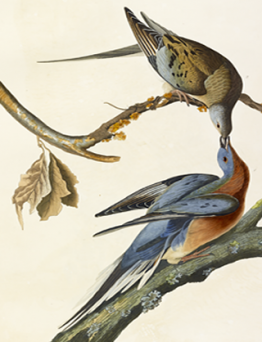 In keeping with the University of Michigan Library’s mission to collect, describe, preserve, and make available the record of human knowledge, the Special Collections Research Center acquires, cares for, interprets, and promotes the use of important collections of unique, rare, primary source, and other material in all formats and in a variety of subject areas. The majority of the unique Judaic Studies collections listed below are housed at the Special Collections Research Center.
In keeping with the University of Michigan Library’s mission to collect, describe, preserve, and make available the record of human knowledge, the Special Collections Research Center acquires, cares for, interprets, and promotes the use of important collections of unique, rare, primary source, and other material in all formats and in a variety of subject areas. The majority of the unique Judaic Studies collections listed below are housed at the Special Collections Research Center.
Judaica in the SCRC
Digital collections
-
 American Jewess
A digital reproduction of the 8 volumes of The American Jewess, the first English-language periodical targeted to American Jewish women, covering an evocative range of topics that ranged from women's place in the synagogue to whether women should ride bicycles.
American Jewess
A digital reproduction of the 8 volumes of The American Jewess, the first English-language periodical targeted to American Jewish women, covering an evocative range of topics that ranged from women's place in the synagogue to whether women should ride bicycles. -
 Jewish Heritage Collection (JHC) Digital Archive
Includes images and supporting descriptions of approximately 600 objects from the Jewish Heritage Collection (JHC). Descriptions are searchable by keyword or with an advanced search of category, material (Art & Architecture Thesaurus vocabulary), item number, holiday or ritual (Library of Congress Subject Headings), geographic origin, location in collection, and donor/source. Users can browse all media, all records, or by topic.
Jewish Heritage Collection (JHC) Digital Archive
Includes images and supporting descriptions of approximately 600 objects from the Jewish Heritage Collection (JHC). Descriptions are searchable by keyword or with an advanced search of category, material (Art & Architecture Thesaurus vocabulary), item number, holiday or ritual (Library of Congress Subject Headings), geographic origin, location in collection, and donor/source. Users can browse all media, all records, or by topic.
- See also: 3D Pushke Exhibit, an exhibit with a wide variety of pushkes (charity boxes) from the JHC.
-
 Rosenberg letters
105 letters documenting the experience of a German Jewish family before, during, and shortly after World War II. Nathan and Johannna Rosenberg of Breisach, Germany, had three sons: Julius (1900-1942), Eugen (1901-1964), and Alfred (1911-2005). Eugen left for Palestine in 1935. Alfred, with his wife, her parents, and her brother, immigrated to the United States in August 1938. Julius remained in Germany with his parents and was murdered at Auschwitz in August 1942. The letters were written to Alfred by his brothers, his parents, and other relatives between 1938 and 1946.
Rosenberg letters
105 letters documenting the experience of a German Jewish family before, during, and shortly after World War II. Nathan and Johannna Rosenberg of Breisach, Germany, had three sons: Julius (1900-1942), Eugen (1901-1964), and Alfred (1911-2005). Eugen left for Palestine in 1935. Alfred, with his wife, her parents, and her brother, immigrated to the United States in August 1938. Julius remained in Germany with his parents and was murdered at Auschwitz in August 1942. The letters were written to Alfred by his brothers, his parents, and other relatives between 1938 and 1946.
- See also: Rosenberg family correspondence, 1938-1946.
Book and periodical collections
-
 Dalia Hoffman Collection
A collection of printed materials, primarily written in Hebrew and published in the first half of the twentieth century, donated by Dalia Hoffman in 2015 in memory of Rabbi Morton and Aviva Hoffman. These items were collected by Dalia's maternal grandfather, Elazar Troppe, one of the founders of Petaḥ-Tikvah. The topics include histories of Zionist agricultural collectives in Eastern Europe, the formative years of Israel, narratives on Petaḥ-Tikvah, and not widely-held children's titles (263 items available, updated in July 2025).
Dalia Hoffman Collection
A collection of printed materials, primarily written in Hebrew and published in the first half of the twentieth century, donated by Dalia Hoffman in 2015 in memory of Rabbi Morton and Aviva Hoffman. These items were collected by Dalia's maternal grandfather, Elazar Troppe, one of the founders of Petaḥ-Tikvah. The topics include histories of Zionist agricultural collectives in Eastern Europe, the formative years of Israel, narratives on Petaḥ-Tikvah, and not widely-held children's titles (263 items available, updated in July 2025). -
Frances and Kathryn Brandt and Lilith Magazine Women's Holocaust Memoir Collection
70 catalog books (updated October 2024). Women’s Holocaust experiences are a distinct lens through which to view the Holocaust and its manifold repercussions for Jewish culture today. Thanks to the generous support of Lilith board member Frances Brandt, Lilith has created the Frances and Kathryn Brandt and Lilith Magazine Women’s Holocaust Memoir Collection at U-M. -
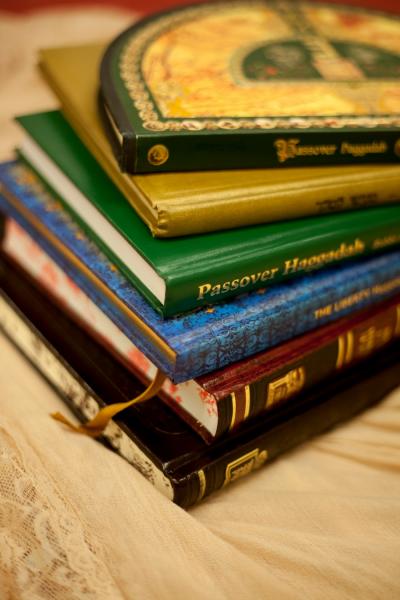 Irwin M. Alterman Haggadah Collection
Acquired in 2016 with the help of the Frankel Center for Judaic Studies, the collection includes more than 1,800 Haggadot. It is believed to be one of the largest Haggada collections in the world. The unique compilation belonged to the late Irwin Alterman of West Bloomfield, and was donated by his widow, Marilyn McCall Alterman. 994 titles have been cataloged so far (updated in March 2021). Besides that, U-M Library also holds hundreds of additional Haggadot, either donated by Constance Harris (and located at the Jewish Heritage Collection), or purchased by the library over the years.
Irwin M. Alterman Haggadah Collection
Acquired in 2016 with the help of the Frankel Center for Judaic Studies, the collection includes more than 1,800 Haggadot. It is believed to be one of the largest Haggada collections in the world. The unique compilation belonged to the late Irwin Alterman of West Bloomfield, and was donated by his widow, Marilyn McCall Alterman. 994 titles have been cataloged so far (updated in March 2021). Besides that, U-M Library also holds hundreds of additional Haggadot, either donated by Constance Harris (and located at the Jewish Heritage Collection), or purchased by the library over the years. -
 Gift of the Congregation Shaarey Zedek Library (Southfield, Michigan) in Memory of Rabbi Irwin Groner
268 titles (accessed August 2023). Books from the Congregation Shaarey Zedek Library (Southfield, Michigan), mainly in Hebrew but also in English and Yiddish, donated to the University of Michigan Library in Memory of Rabbi Irwin Groner.
Gift of the Congregation Shaarey Zedek Library (Southfield, Michigan) in Memory of Rabbi Irwin Groner
268 titles (accessed August 2023). Books from the Congregation Shaarey Zedek Library (Southfield, Michigan), mainly in Hebrew but also in English and Yiddish, donated to the University of Michigan Library in Memory of Rabbi Irwin Groner. -
 Hebrew materials in the Joseph A. Labadie Collection
20 catalog results (updated September 2023). The Joseph A. Labadie Collection is one of the oldest, largest, and most comprehensive collections of its kind, with materials on anarchism, anti-colonialist movements, antiwar and pacifist movements, atheism and free thought, civil liberties and civil rights, ecology, labor and workers’ rights, feminism, LGBTQ movements, prisons and prisoners, the New Left, the Spanish Civil War, and youth and student protest. Image: Friḳi: ʻiton-ha-yeladim ha-nafus be-yoter be-Yiśraʼel. PJ 5055.12 .M557 F75 1973
Hebrew materials in the Joseph A. Labadie Collection
20 catalog results (updated September 2023). The Joseph A. Labadie Collection is one of the oldest, largest, and most comprehensive collections of its kind, with materials on anarchism, anti-colonialist movements, antiwar and pacifist movements, atheism and free thought, civil liberties and civil rights, ecology, labor and workers’ rights, feminism, LGBTQ movements, prisons and prisoners, the New Left, the Spanish Civil War, and youth and student protest. Image: Friḳi: ʻiton-ha-yeladim ha-nafus be-yoter be-Yiśraʼel. PJ 5055.12 .M557 F75 1973 -
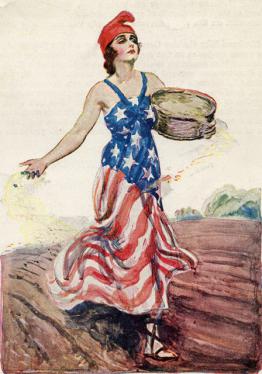 Jewish cooking books in the Janice Bluestein Longone Culinary Archive
281 catalog results (updated September 2023). Items from the Janice Bluestein Longone Culinary Archive classified under the subject "Jewish cooking". The items in this list are organized in chronological order, newest first.
Jewish cooking books in the Janice Bluestein Longone Culinary Archive
281 catalog results (updated September 2023). Items from the Janice Bluestein Longone Culinary Archive classified under the subject "Jewish cooking". The items in this list are organized in chronological order, newest first. -
 Leo W. Schwarz Collection
Books and materials that belonged to writer, editor, educator and lecturer Leo W. Schwarz (1906-1967). Includes rare materials on Jewish mysticism, Hasidut, and publications by residents of post-World War II displaced persons camps in Germany. Donated by the University of Iowa Library. 708 items available.
Leo W. Schwarz Collection
Books and materials that belonged to writer, editor, educator and lecturer Leo W. Schwarz (1906-1967). Includes rare materials on Jewish mysticism, Hasidut, and publications by residents of post-World War II displaced persons camps in Germany. Donated by the University of Iowa Library. 708 items available. -
 Yiddish materials in the Joseph A. Labadie Collection
189 catalog results (accessed September 2023). The Joseph A. Labadie Collection is one of the oldest, largest, and most comprehensive collections of its kind, with materials on anarchism, anti-colonialist movements, antiwar and pacifist movements, atheism and free thought, civil liberties and civil rights, ecology, labor and workers’ rights, feminism, LGBTQ movements, prisons and prisoners, the New Left, the Spanish Civil War, and youth and student protest. Image: Joseph A. Labadie.
Yiddish materials in the Joseph A. Labadie Collection
189 catalog results (accessed September 2023). The Joseph A. Labadie Collection is one of the oldest, largest, and most comprehensive collections of its kind, with materials on anarchism, anti-colonialist movements, antiwar and pacifist movements, atheism and free thought, civil liberties and civil rights, ecology, labor and workers’ rights, feminism, LGBTQ movements, prisons and prisoners, the New Left, the Spanish Civil War, and youth and student protest. Image: Joseph A. Labadie.
Archival materials
-
Allan Blustein papers, 1959-1995Includes: awards, letters of commendation and appreciation, clippings, and photographs pertaining to Allan Blustein. There are also informational brochures about Jewish chaplaincy during peace and war and Judaism in general.
-
 Beth Israel Congregation (Ann Arbor, Mich.) records, 1938-2016 bulk 1956-2016
This is an archival collection housed at the Bentley Historical Library. Founded in 1916 by Osias Zwerdling, Philip Lansky, and other members of the Jewish Community, Beth Israel was the first formally established conservative Jewish congregation in Ann Arbor, Mich. The record group chronicles the history and activities of the congregation over a period of 78 years, from 1938 to 2016.
Beth Israel Congregation (Ann Arbor, Mich.) records, 1938-2016 bulk 1956-2016
This is an archival collection housed at the Bentley Historical Library. Founded in 1916 by Osias Zwerdling, Philip Lansky, and other members of the Jewish Community, Beth Israel was the first formally established conservative Jewish congregation in Ann Arbor, Mich. The record group chronicles the history and activities of the congregation over a period of 78 years, from 1938 to 2016. -
 Eduard Chavkin papers: typescript, 1919-1936
Bavarian gardener with a Jewish background whose political affiliations were left-wing Socialist and Communist; emigrated to Palestine in the early 1930s.
Eduard Chavkin papers: typescript, 1919-1936
Bavarian gardener with a Jewish background whose political affiliations were left-wing Socialist and Communist; emigrated to Palestine in the early 1930s. -
Esther Dolgoff "Jewish Anarchist Movement in America" collection (1980-2018, bulk 1980-1989)Contains material related to the anarchist Esther Dolgoff's English translation, completed around 1980, of Joseph Cohen's 1945 Yiddish book Di yidish anarkhistishe bavegung in Amerike: historike iberblik un perzenlekhe iberlebungen (The Jewish Anarchist Movement in America: Historical Overview and Personal Experiences). In addition to a photocopy of Dolgoff's handwritten translation of the four-part work, the collection contains a small number of letters written by Dolgoff concerning the manuscript.
-
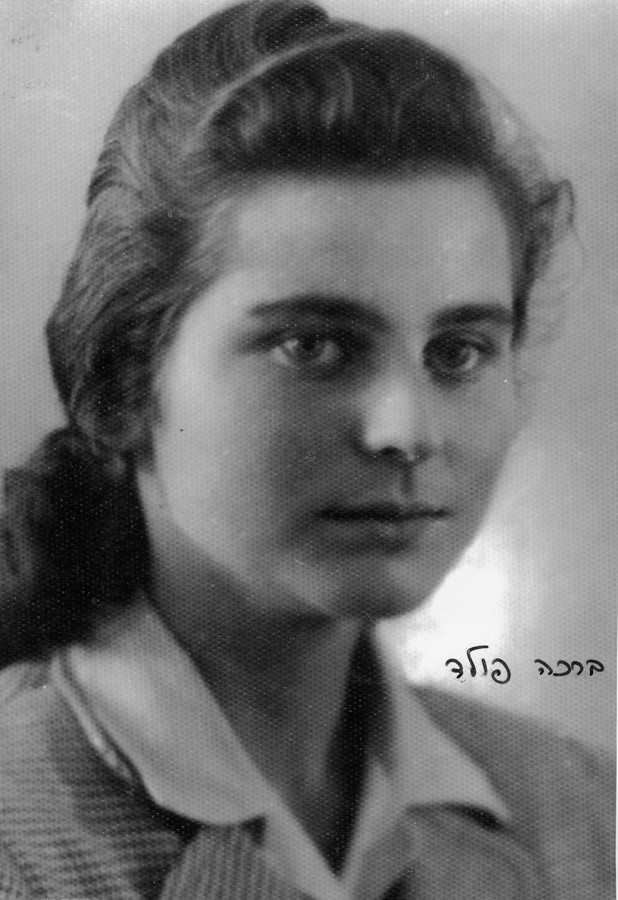 Fuld Family Papers and the correspondence of Bracha Fuld (1926-1946)
Housed in the Bentley Historical Library, the Fuld Family Papers series is part of the Netzorg Family Papers Collection. The series contain letters by the Fuld family, including some written by Bracha Fuld (Berlin, 1926 - Tel Aviv, 1946), a Jewish female resistance fighter killed in 1946 during an operation carried on by the underground army of the Jewish community in British Mandate Palestine.
Fuld Family Papers and the correspondence of Bracha Fuld (1926-1946)
Housed in the Bentley Historical Library, the Fuld Family Papers series is part of the Netzorg Family Papers Collection. The series contain letters by the Fuld family, including some written by Bracha Fuld (Berlin, 1926 - Tel Aviv, 1946), a Jewish female resistance fighter killed in 1946 during an operation carried on by the underground army of the Jewish community in British Mandate Palestine.
- See also: Correspondence of Bracha Fuld (Berlin, 1926 - Tel Aviv, 1946), by G. Mordoch & E. Gertel (2018).
-
 Jewish Family and Children's Service (JSSB-Detroit), ca. 1924-1963
This collection consists predominantly of records of the Jewish Social Service Bureau and, to a much lesser extent, of records of the Jewish Family and Children's Service. The bulk of the collection consists of records of individual cases which were processed by the JSSB.
Jewish Family and Children's Service (JSSB-Detroit), ca. 1924-1963
This collection consists predominantly of records of the Jewish Social Service Bureau and, to a much lesser extent, of records of the Jewish Family and Children's Service. The bulk of the collection consists of records of individual cases which were processed by the JSSB. -
Jewish Outreach Papers (1970-1999)This collection contains the correspondence between David Belin and numerous influential Jewish philanthropists, writers, rabbis, and officials of Reform Jewish organizations on the topic of Jewish Outreach. It also contains writings, speeches, articles, newspaper clippings, and published materials about Jewish outreach topics. Well-represented subjects include conversion to Judaism, outreach to intermarried couples, rabbinic officiation of marriages between Jews and non-Jews, Jewish population studies, anti-Semitism in late 20th century United States, and Zionism in the Reform Judaic movement.
-
 Joseph T. and Marie F. Adler collection of Holocaust and Judaica materials, 1915-1995 (bulk 1970-1995)
Joseph Theo Adler and his wife, Marie F. (née Salomon) Adler, fled Nazi Germany after Joseph Adler's six-month internment in the concentration camp at Dachau, settling in Detroit, Michigan, in 1939. Joseph Adler was an avid philatelist and collector of information and memorabilia relating to his Jewish heritage, but also in a multitude of other areas as well: current events, notable figures, and travel, to name a few. The collection is organized into six series and their nested subseries approximating Joseph Adler's original arrangement.
Joseph T. and Marie F. Adler collection of Holocaust and Judaica materials, 1915-1995 (bulk 1970-1995)
Joseph Theo Adler and his wife, Marie F. (née Salomon) Adler, fled Nazi Germany after Joseph Adler's six-month internment in the concentration camp at Dachau, settling in Detroit, Michigan, in 1939. Joseph Adler was an avid philatelist and collector of information and memorabilia relating to his Jewish heritage, but also in a multitude of other areas as well: current events, notable figures, and travel, to name a few. The collection is organized into six series and their nested subseries approximating Joseph Adler's original arrangement. -
 Mike Gold (Irwin Granich) and Mike Folsom papers (1901-1990, and undated, bulk 1930-1967)
Famous for his book "Jews Without Money", Mike Gold was born Irwin (Itzok) Isaac Granich in 1893 in New York City. He was the first of three sons born to Charles and Kathe (Kate) Granich, Jewish immigrants from Romania and Hungary, respectively. The family resided on the Lower East Side in a Chrystie Street tenement slum, a block away from the infamous Bowery. In the picture: fragment of Jews Without Money in box #3.
Mike Gold (Irwin Granich) and Mike Folsom papers (1901-1990, and undated, bulk 1930-1967)
Famous for his book "Jews Without Money", Mike Gold was born Irwin (Itzok) Isaac Granich in 1893 in New York City. He was the first of three sons born to Charles and Kathe (Kate) Granich, Jewish immigrants from Romania and Hungary, respectively. The family resided on the Lower East Side in a Chrystie Street tenement slum, a block away from the infamous Bowery. In the picture: fragment of Jews Without Money in box #3. -
 Rabbi Judah Leyb Levin Papers 1862-1926
The Rabbi Levin collection contains his two books (in three volumes), Sefer Ha-Aderet Veha-Emunah . Many of Levin’s ideas concerning various Talmudic tractates are collected in these volumes. The chapters are arranged by the order of the Mishnah, and in the last volume he discusses some biblical matters. The published volumes have been removed from the collection of manuscript material and cataloged separately. The collection also contains family documents, manuscript notebooks, and miscellaneous notes. In addition to being rabbi, Levin was also an inventor. He invented one of the earliest machines that was able to perform simple calculations involving adding and subtracting. In the picture: Technical figures of Levin’s calculating machine (Box 1, File 3).
Rabbi Judah Leyb Levin Papers 1862-1926
The Rabbi Levin collection contains his two books (in three volumes), Sefer Ha-Aderet Veha-Emunah . Many of Levin’s ideas concerning various Talmudic tractates are collected in these volumes. The chapters are arranged by the order of the Mishnah, and in the last volume he discusses some biblical matters. The published volumes have been removed from the collection of manuscript material and cataloged separately. The collection also contains family documents, manuscript notebooks, and miscellaneous notes. In addition to being rabbi, Levin was also an inventor. He invented one of the earliest machines that was able to perform simple calculations involving adding and subtracting. In the picture: Technical figures of Levin’s calculating machine (Box 1, File 3). -
Weinreich Collection
In 2008, the University of Michigan received the library and personal papers of Beatrice (Bina) Silverman Weinreich, a scholar whose life’s work was to preserve the Yiddish language and culture. A few years before her passing in March 2008, Bina Weinreich had given some of her late husband, Uriel Weinreich’s as well as her own papers to the YIVO Institute for Jewish Research, with whom the Weinreichs share deep roots. She left no instructions concerning the rest of the papers and the family library. Michigan’s blooming Yiddish scholarship and Bina’s personal connection to her former student Vera Szabó brought about the family’s decision to donate the rich collection to us.
- See also: "Gift of the Estate of Bea Weinreich" books at U-M Library (200 items cataloged)
- Weinreich Collection (additional information, from the Frankel Center for Judaic Studies webpage)
Mixed materials (books, archival, illustrations, and objects)
-
Women's Tefillah Movement Records, 1981-1986contains newsletters from the Women's Tefillah Network and Teaneck Group, an event flier from the Women's Tefila Group, newspaper clippings, articles, and a conference paper on Orthodox Jewish women's prayer groups, and photocopies of positive and negative t'shuvas. Materials are mainly in English, with some Hebrew materials.
-
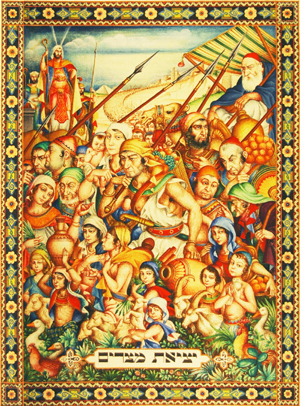 Arthur Szyk Collection
101 catalog results (updated October 2024). Illustrations, books and materials by or about Jewish-American, Polish born artist Arthur Szyk (1894-1951) housed at the Special Collections Research Center as well as in other collections at the U-M Library.
Arthur Szyk Collection
101 catalog results (updated October 2024). Illustrations, books and materials by or about Jewish-American, Polish born artist Arthur Szyk (1894-1951) housed at the Special Collections Research Center as well as in other collections at the U-M Library.
- See also: Arthur Szyk: Soldier in art (15 minutes documentary film).
-
 Bezalel School movement materials
68 catalog results (updated February 2024). Includes works by Jerusalem School movement artists Ephraim Moses Lilien, Zeev Raban, Jacob Steinhardt, Menachem Shemi, Abel Pann, and others. Housed mainly in the Jewish Heritage Collection (JHC). Image: Abel Pann, A young ashkenazic girl, in Twelve original lithographic pictures of types and scenes of Jerusalem, call number NC 1165 .P3 T84 1925
Bezalel School movement materials
68 catalog results (updated February 2024). Includes works by Jerusalem School movement artists Ephraim Moses Lilien, Zeev Raban, Jacob Steinhardt, Menachem Shemi, Abel Pann, and others. Housed mainly in the Jewish Heritage Collection (JHC). Image: Abel Pann, A young ashkenazic girl, in Twelve original lithographic pictures of types and scenes of Jerusalem, call number NC 1165 .P3 T84 1925 -
 Jewish Heritage Collection (JHC)
Includes over 2000 books, serials, and pamphlets, 1000 works of art, drawings, paintings, engravings, woodcuts, and artifacts, from mass-produced to hand-crafted, documenting both mundane and ceremonial aspects of Jewish life. Its geographical scope ranges throughout the globe with a European and American core collection and Israeli art. These materials have been collected over several decades by Constance and Theodore Harris and have been gifted to the University Library and the Frankel Center for Judaic Studies since 2003. Picture: Saul Raskin, Pirke Aboth in etchings, call number BM 506 .A2 R372 1940
Jewish Heritage Collection (JHC)
Includes over 2000 books, serials, and pamphlets, 1000 works of art, drawings, paintings, engravings, woodcuts, and artifacts, from mass-produced to hand-crafted, documenting both mundane and ceremonial aspects of Jewish life. Its geographical scope ranges throughout the globe with a European and American core collection and Israeli art. These materials have been collected over several decades by Constance and Theodore Harris and have been gifted to the University Library and the Frankel Center for Judaic Studies since 2003. Picture: Saul Raskin, Pirke Aboth in etchings, call number BM 506 .A2 R372 1940
- See also: Portrait of a People, a Jewish Heritage Collection exhibition (2005).
-
Victor Perera Papers
Victor Haim Perera (1934-2003) was a son of Sephardic parents from Jerusalem who moved to Guatemala City, where he was born and raised. They moved to New York City when he was twelve years-old. An author, journalist, and scholar, Perera received a master’s degree in English Literature from the University of Michigan and taught literature and journalism at the University of California at Santa Cruz and Berkeley. Perera's writings focused on Sephardic Jewry and on Latin America (particularly the Maya Indians). His personal archive and library were donated to the University of Michigan in 2002.
Highlights from other libraries
-
Dorot Jewish Division (New York Public Library)Established as a distinct collection with funding contributed by Jacob Schiff in 1897, just two years after the formation of The New York Public Library.
-
Druck Collection of Kibbutz and Secular HaggadotComprises items dating from the mid-1930s to the mid-1990s and includes materials produced in-house by kibbutzim, youth movements, and army units.ne of the largest of its kind in the world, this collection documents how kibbutzim and various Zionist, socialist, and secular groups and movements in Israel and around the world created new liturgies to satisfy their own spiritual needs.
-
Harvard Judaica's Digital CollectionDocuments the life and culture of the Jewish people, with particular focus on life and culture in Israel.
-
Magnes Collection of Jewish Art and LifeA museum and research center at the University of California, Berkeley, and one of the world’s preeminent Jewish museums.
-
Shimeon Brisman Collection in Jewish Studies (WashU)Named after Shimeon Brisman (1920-2004), a librarian, rare book seller, and expert in Hebrew bibliography.
-
Steven Ungerleider Collection of Haggadot (Brown University Library)Includes haggadot in a variety of Jewish vernacular languages, from Yiddish and Ladino to Judeo-Italian and Judeo-Arabic, covering more than four hundred years of Jewish culture, from the Ottoman Empire in 1505 to the State of Israel in the 1950s.
Last Updated: Nov 18, 2025 7:38 PM
Subjects: Humanities, International Studies, Social Sciences
Tags: Antisemitism, Black Studies, comics, Conversos, food studies, hebrew, holocaust, humor, israel, jewish, Jewish Studies, Jews, Judaic, judaica, judaism, judenfrage, Judeo-Spanish, Ladino, sefaradi, Sefardi, Sephardic, Sephardim, women, yiddish